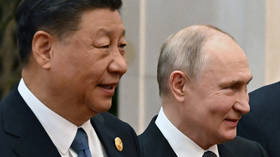Yemeni War Deaths Have Been Underestimated by 5 to 1

Broad acceptance of these results would have been politically disastrous for the U.S. and UK governments. It would also have further discredited the Western media that had supported the invasion of Iraq and were still blaming the Iraqi victims of the illegal invasion of their country for the violence and chaos of the occupation. The British Defence Ministry’s chief scientific advisor described the Lancet studies’ design as “robust” and their methods as “close to best practice,” and British officials admitted privately that they were “likely to be right.“ The U.S. and UK governments nonetheless launched a concerted campaign to discredit them.
No Scientific Basis
In 2005, as American and British officials and their acolytes in the corporate media discounted his work, Les Roberts, the lead author of the 2004 study, told the UK media watchdog Media Lens, “It is odd that the logic of epidemiology embraced by the press every day regarding new drugs or health risks somehow changes when the mechanism of death is their armed forces.”
Roberts, at Johns Hopkins School of Public Health at the time of the 2004 study and now at Columbia, accurately said there was no legitimate scientific basis for the objections being raised to his work and its results. But it was not so odd that embattled political leaders would use all the tools at their disposal to try to salvage their careers and reputations—and to preserve the U.S. and UK’s future freedom of action to destroy countries that stand in their way.
By 2005, most Western journalists in Iraq were hunkered down in Baghdad’s fortified Green Zone, reporting mainly from the CENTCOM briefing room. If they ventured out, they were embedded with U.S. forces traveling by helicopter or armored convoy between fortified U.S.bases. Dahr Jamail was one of a few brave, un-embedded Americans reporting from Iraq. (He later named his book about his time there Beyond the Green Zone.) Dahr told me he thought the true number of Iraqis killed might well be even higher than the Lancet studies’ estimates and that it was certainly not much lower, as the Western propaganda machine insisted it was.
Unlike Western governments and the Western media in the Iraq case, and UN agencies and the same Western media in Afghanistan and Yemen, ACLED does not defend its earlier, inadequate estimates of war deaths in Yemen. Instead, it is conducting a thorough review of its sources to come up with a more realistic estimate of how many people have been killed. Working back from the present, it now estimates that 56,000 people have been killed since January 2016.
Andrea Carboni of ACLED told Patrick Cockburn of The Independent newspaper in Britain that he believes ACLED’s estimate of the number killed in three and a half years of war on Yemen will be between 70,000 and 80,000 once it has finished reviewing its sources back to March 2015, when Saudi Arabia, the U.S., and their allies started the war.
But the true number of people killed in Yemen is inevitably even higher than ACLED’s revised estimate. As I explained in my Consortium News report, no such effort to count the dead by reviewing media reports, hospital records, and other “passive” sources, no matter how thoroughly, can ever fully count the dead amid the widespread violence and chaos of a country ravaged by war.
This is why epidemiologists have developed statistical techniques to produce more accurate estimates of how many people have really been killed in the world’s war zones. The world still waits for that kind of genuine accounting of the true human cost of the Saudi-U.S. war in Yemen and, indeed, of all America’s post-9/11 wars.
A earlier version of this article appeared on CounterPunch.
Nicolas J.S. Davies is the author of Blood On Our Hands: the American Invasion and Destruction of Iraq. He also wrote the chapter on “Obama at War” in Grading the 44th President: a Report Card on Barack Obama’s First Term as a Progressive Leader.
If you enjoyed this original article please consider making a donation to Consortium News so we can bring you more stories like this one.


